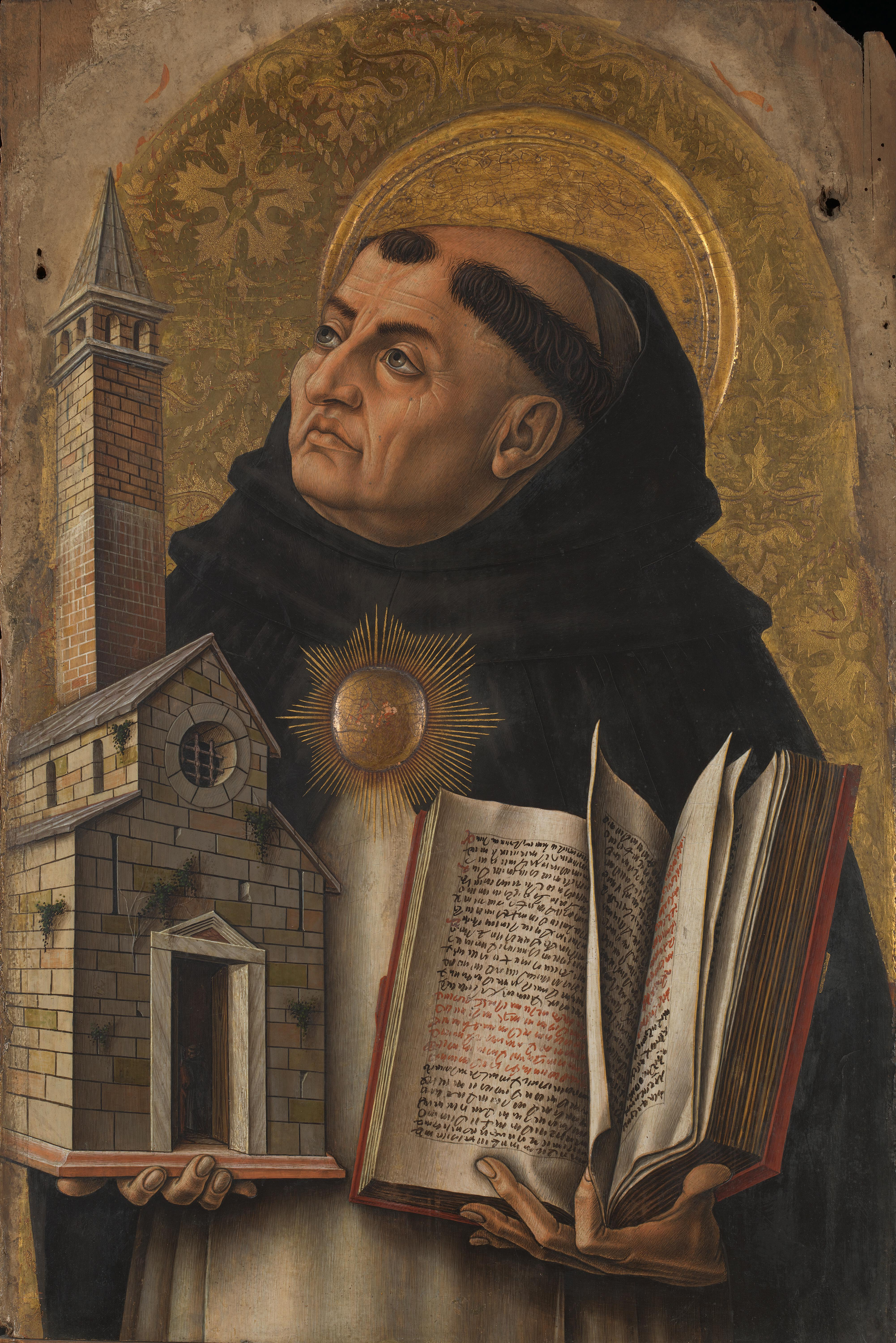Svatý Tomáš Akvinský najznámejšie citáty
„Láska je priateľstvo človeka s Bohom.“
Potvrdené výroky
Zdroj: MÜHS, Wilhelm: Slovom srdca, 365 myšlienok o láske. Bratislava: Nové mesto, 2000, s. 217. ISBN 80-85487-61-6
Svatý Tomáš Akvinský Citáty o láske
„Akýkoľvek skutok lásky si zasluhuje večný život.“
Potvrdené výroky
Zdroj: MÜHS, Wilhelm: Slovom srdca, 365 myšlienok o láske. Bratislava: Nové mesto, 2000, s. 195. ISBN 80-85487-61-6
„Láska nepozná hranice v raste, pretože má účasť na nekonečnej láske, ktorý je Duch Svätý.“
Potvrdené výroky
Zdroj: MÜHS, Wilhelm: Slovom srdca, 365 myšlienok o láske. Bratislava: Nové mesto, 2000, s. 117. ISBN 80-85487-61-6
„Kto je dokonalý v láske, je dokonalý v duchovnom živote.“
Potvrdené výroky
Zdroj: MÜHS, Wilhelm: Slovom srdca, 365 myšlienok o láske. Bratislava: Nové mesto, 2000, s. 12. ISBN 80-85487-61-6
Svatý Tomáš Akvinský Citáty o živote
Svatý Tomáš Akvinský citáty a výroky
God, give us grace to accept with serenity the things that cannot be changed, courage to change the things which should be changed, and the wisdom to distinguish the one from the other.
The Serenity Prayer (ca. 1942)
Potvrdené výroky
Varianta: Bože, daj mi pokojnú myseľ, aby som prijal veci, ktoré zmeniť nemôžem. Daj mi silu, aby som zmenil veci, ktoré zmeniť môžem. A daj mi múdrosť, aby som rozlíšil jedno od druhého.
„Nádej má štyri predpoklady: dobro, neľahké, budúce, možné.“
Prisudzované výroky
„Tam, kde je duchovné poznanie, je aj slobodná vôľa.“
Potvrdené výroky
Zdroj: Pre Teba, Bratislava: Lúč 2008, 27. týždeň.
„Všetky bytosti sa domáhajú dobra, no nie všetky poznávajú pravdu.“
Potvrdené výroky
Zdroj: Pre Teba, Bratislava: Lúč 2008, 42. týždeň.
„Pre človeka je prirodzené, že zmyslami dosahuje duchovné poznanie.“
Potvrdené výroky
Zdroj: Pre Teba, Bratislava: Lúč 2008, 28. týždeň.
Svatý Tomáš Akvinský: Citáty v angličtine
Summa Contra Gentiles II, 18.2 (see also Summa Theologica I, q. 45, art. 3 ad 2)
“To scorn the dictate of reason is to scorn the commandment of God.”
Zdroj: Summa Theologica (1265–1274) I-II, q. 19, art. 5
in Aquinas: Selected Political Writings (Basil Blackwell: 1974), p. 183
Commentary on the Sentences of Peter Lombard
in Aquinas: Selected Political Writings (Basil Blackwell: 1974), p. 183
Commentary on the Sentences of Peter Lombard
“It must be said that charity can, in no way, exist along with mortal sin.”
Quaestiones disputatae: De caritate (ca. 1270) http://dhspriory.org/thomas/QDdeVirtutibus2.htm#6
“Sing, my tongue, the Savior's glory,
Of His Flesh the mystery sing;
Of the Blood, all price exceeding,
Shed by our immortal King.”
Pange, lingua, gloriosi
Corporis mysterium
Sanguinisque pretiosi,
Quem in mundi pretium
Fructus ventris generosi
Rex effudit gentium.
Pange, Lingua (hymn for Vespers on the Feast of Corpus Christi), stanza 1
“Law: an ordinance of reason for the common good, made by him who has care of the community.”
Summa Theologica (1265–1274), Unplaced by chapter
Summa Theologica Question 25 Article 6 http://www.ccel.org/ccel/aquinas/summa.FP_Q25_A4.html
Summa Theologica (1265–1274), Unplaced by chapter
“We can open our hearts to God, but only with Divine help.”
Quaestiones de veritate disputatae q 24, art. 15, ad 2
Summa Contra Gentiles, I, 6.4 (trans. Anton C. Pegis)
“Not everyone who is enlightened by an angel knows that he is enlightened by him.”
I, q. 111, art. 1, ad 3
Summa Theologica (1265–1274)
“Concerning perfect blessedness which consists in a vision of God.”
Summa Theologica (1265–1274), Unplaced by chapter
“One who liberates his country by killing a tyrant is to be praised and rewarded.”
Trans. J.G. Dawson (Oxford, 1959), 44, 2 in O’Donovan, pp. 329-30
Commentary on the Sentences of Peter Lombard
Part I, Question 1, Article 1; tr. Fathers of the English Dominican Province (1920, New York: Benziger Bros.)
Summa Theologica (1265–1274)
Verbum Supernum Prodiens (hymn for Lauds on Corpus Christi), stanza 5 (O Salutaris Hostia)
Sermon on the Apostles' Creed (1273), prologue (trans. Joseph B. Collins)
Variant translation: Now slavery has a certain likeness to death, hence it is also called civil death. For life is most evident in a thing's moving itself, while what can only be moved by another, seems to be as if dead. But it is manifest that a slave is not moved by himself, but only at his master's command.
Chapter 14 https://www.pathsoflove.com/aquinas/perfection-of-the-spiritual-life.html#chapter14
On The Perfection of the Spiritual Life https://www.pathsoflove.com/aquinas/perfection-of-the-spiritual-life.html (1269-1270)
Originál: (la) Vita enim in hoc maxime manifestatur quod aliquid movet se ipsum; quod autem non potest moveri nisi ab alio, quasi mortuum esse videtur.
